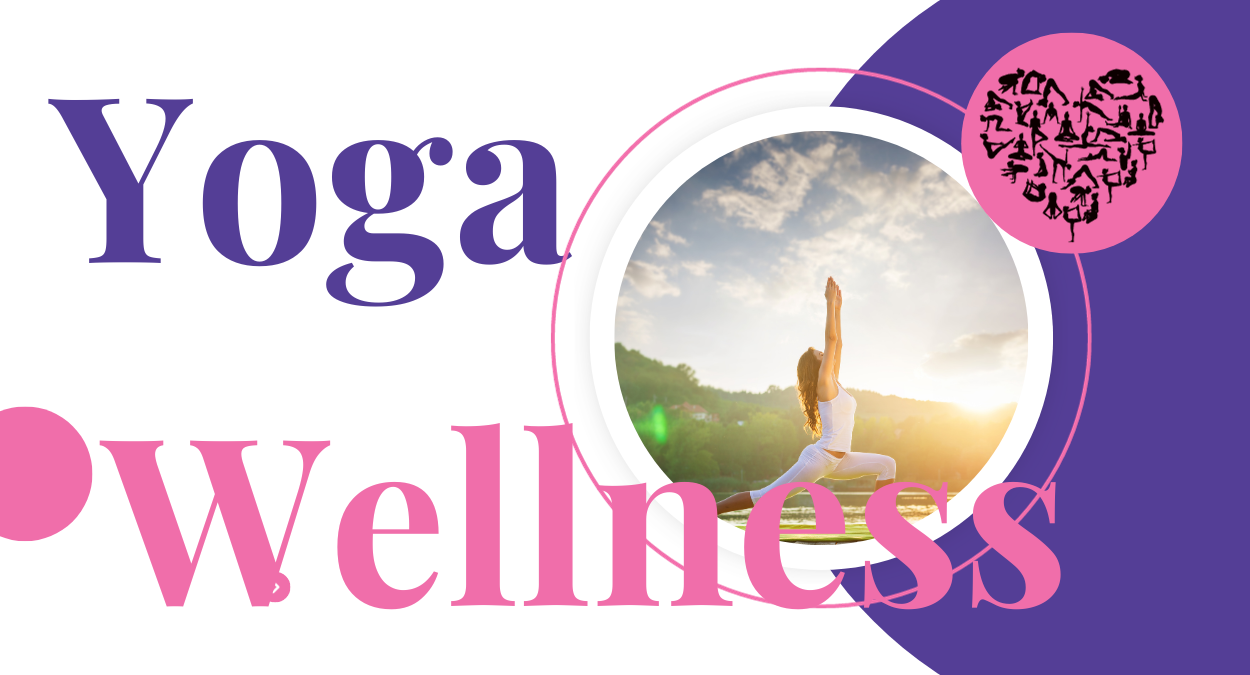Start Your Day with Yoga: A Path to Health and Harmony | What is yoga?
Introduction: In the fast-paced world we live in today, it’s easy to feel overwhelmed, stressed, and disconnected from our inner selves. The daily grind often leaves us with little time for self-care and maintaining our physical and mental well-being.
However, there is a simple and effective way to counter these challenges: starting your day with yoga. This ancient practice offers a multitude of benefits that can transform your mornings and set a positive tone for the entire day. In this article, we’ll explore why and how you should consider incorporating yoga into your daily routine.
What is yoga?
Yoga is a holistic practice that combines physical postures (asanas), breathing techniques (pranayama), meditation, and ethical principles to promote overall health and well-being. It originated in ancient India and has been practiced for thousands of years.

The Power of Morning Yoga
Awakening the Body
One of the most immediate benefits of starting your day with yoga is that it gently awakens your body from its overnight slumber. As you move through a sequence of poses, you increase blood flow and oxygenate your muscles, leaving you feeling invigorated and ready to take on the day ahead. This can be especially helpful for those who struggle with morning stiffness or fatigue.
Mind-Body Connection
Yoga is not just about physical postures; it’s also about connecting your mind and body. The mindful breathing and deliberate movements of yoga help you become more aware of your body’s sensations, fostering a deeper understanding of yourself. This connection can lead to increased self-awareness and emotional balance, setting a positive tone for the day.
Stress Reduction
Morning yoga provides a peaceful and serene start to your day, helping to reduce stress and anxiety. The practice encourages relaxation and mindfulness, allowing you to leave behind the worries of yesterday and the challenges of the day ahead. By cultivating a sense of calm, you can approach your daily tasks with a clearer and more focused mind.
Increased Energy
Contrary to the belief that yoga is a purely calming practice, it can actually boost your energy levels. Through controlled breathing and gentle stretches, yoga stimulates the body’s energy centers and can help you feel more awake and alert. This natural energy boost can be a healthier alternative to caffeine.
Improved Flexibility and Strength
Consistent morning yoga practice can lead to increased flexibility and strength over time. As your body becomes more accustomed to the stretches and postures, you’ll notice improvements in your overall physical fitness. This increased flexibility and strength can prevent injuries and enhance your daily activities.

How to Incorporate Morning Yoga?
Set a Routine
Consistency is key when it comes to reaping the benefits of morning yoga. Choose a specific time and place for your practice and stick to it. Creating a routine helps make yoga a natural part of your morning ritual.
Start with Simplicity
If you’re new to yoga, begin with simple and gentle poses. There are plenty of beginner-friendly routines available online or through yoga apps. As you become more comfortable, you can gradually incorporate more challenging poses into your practice.
Listen to Your Body
Yoga is a personal practice, and it’s essential to listen to your body’s cues. Never force yourself into a pose that feels uncomfortable or painful. Yoga should be a comfortable and enjoyable experience.
Mindful Breathing
Pay attention to your breath during your morning yoga practice. Deep, controlled breathing helps to calm the mind and oxygenate the body. Focusing on your breath can be a valuable tool for reducing stress and anxiety.
Seek Guidance
If you’re unsure about where to start or want to deepen your practice, consider taking classes from a certified yoga instructor. They can provide guidance, correct your form, and offer modifications tailored to your specific needs.
Conclusion
Starting your day with yoga can be a transformative experience for your physical and mental well-being. By awakening your body, connecting your mind and body, reducing stress, increasing energy, and improving flexibility and strength, yoga sets a positive tone for the day ahead. So, why not trade a few extra minutes of sleep for a morning yoga practice?
Your body and mind will thank you as you embrace a healthier, more balanced lifestyle. Remember, the journey of a thousand miles begins with a single step, and in the case of morning yoga, it begins with a single sun salutation.

Yoga Wellness: Nurturing Your Body, Mind, and Soul
Yoga, an ancient practice that originated in India, is much more than a physical exercise routine. It’s a holistic approach to well-being that encompasses the body, mind, and soul. Yoga wellness is about finding harmony and balance in your life by integrating yoga into your daily routine. In this article, we will explore the various dimensions of yoga wellness and how it can contribute to your overall health and happiness.
1. Physical Well-being:
Yoga promotes physical health through a series of postures (asanas) and movements that improve flexibility, strength, and balance. It also helps with:
- Pain Management: Yoga can alleviate chronic pain conditions such as lower back pain, arthritis, and migraines by improving posture and reducing muscle tension.
- Cardiovascular Health: Certain yoga practices, like vinyasa and power yoga, provide cardiovascular benefits by increasing heart rate and circulation.
- Digestive Health: Yoga poses can stimulate the digestive system, alleviate constipation, and enhance overall gut health.
- Respiratory Health: Yoga incorporates controlled breathing techniques (pranayama) that strengthen the respiratory system, increase lung capacity, and improve oxygen exchange in the body.
2. Mental Well-being:
Yoga is renowned for its positive effects on mental health. Regular practice can:
- Stress Reduction: Mindful breathing and meditation in yoga help reduce stress and anxiety, promoting relaxation and a sense of calm.
- Improved Focus: Yoga enhances concentration and mental clarity, helping you become more present in your daily life.
- Emotional Balance: It encourages self-awareness and emotional regulation, making it a valuable tool for managing mood disorders like depression and anxiety.
- Better Sleep: Yoga can help improve the quality of your sleep by relaxing the nervous system and reducing insomnia.
3. Spiritual Well-being:
For many, yoga is a deeply spiritual practice that fosters a sense of connection and inner peace:
- Self-Discovery: Yoga encourages introspection and self-reflection, aiding in the discovery of your true self and life’s purpose.
- Mind-Body Connection: By uniting physical postures with mindfulness, yoga enhances the connection between the body and mind, leading to a more profound sense of spirituality.
- Meditation: Yoga often includes meditation practices that promote spiritual growth and inner peace.
4. Social Well-being:
Yoga wellness extends beyond the individual to the community. Joining a yoga class or community can:
- Build Social Connections: Yoga classes provide an opportunity to meet like-minded individuals who share an interest in health and well-being.
- Support and Encouragement: Practicing with others can provide motivation, support, and a sense of belonging.
5. Environmental Well-being:
Yoga often emphasizes a connection to the environment and the world around us:
- Mindful Living: Yoga encourages a mindful and sustainable lifestyle, promoting eco-friendly choices and a deep respect for the environment.
- Reduced Stress on Resources: By reducing stress and promoting overall well-being, yoga indirectly contributes to a more sustainable world.
Incorporating Yoga Wellness into Your Life:
- Start Slow: If you’re new to yoga, begin with basic poses and gradually progress to more advanced practices.
- Consistency is Key: Establish a regular practice routine, even if it’s just a few minutes a day.
- Listen to Your Body: Respect your body’s limits and avoid pushing yourself too hard in poses.
- Seek Guidance: Consider taking classes from a certified yoga instructor to ensure proper form and alignment.
- Combine Yoga with Other Healthy Habits: Yoga can be complemented with a balanced diet, regular exercise, and adequate sleep for holistic wellness.
Yoga wellness is a journey of self-discovery and self-care that can lead to improved physical health, enhanced mental well-being, and a greater sense of connection to yourself and the world around you. Whether you’re a beginner or an experienced practitioner, yoga has something to offer everyone on the path to wellness.
Frequently Asked Questions (FAQs)
Certainly! Here are some frequently asked questions (FAQs) along with their answers:
What is yoga?
What are the benefits of practicing yoga?
Do I need to be flexible to do yoga?
Can yoga help with stress and anxiety?
How often should I practice yoga?
What equipment do I need for yoga?
Is yoga a religious practice?
Can anyone practice yoga, regardless of age or fitness level?
How do I find a good yoga class or instructor?
Can I practice yoga at home, or do I need to attend classes?
These are just a few common questions about yoga, but there’s much more to explore and discover within this ancient practice. Yoga can be a valuable addition to your daily routine, promoting physical health, mental clarity, and inner peace.



